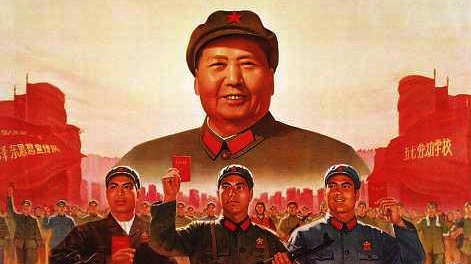This year marks 50 years since Mao Zedong launched the Cultural Revolution, the mass political movement that caused social upheaval and resulted in the death and persecution of millions. While the government has not yet accounted for the violence and destruction of the period, citizens who witnessed or participated in the events of the decade as teenage Red Guards or “sent-down youth” have had their lives forever altered by their experiences. Some, like President Xi Jinping, went on to become part of the political system that created the chaos, while others were inspired to try to change that system. In the New York Times, Luo Siling interviews Hu Ping, an editor living in New York who had been a “sent-down youth” before becoming a prominent voice of the democracy movement in China. Hu has written a book titled “Why Did Mao Zedong Launch the Cultural Revolution?”:
Your generation’s experience of the Cultural Revolution fostered the emergence of politically liberal ideas in China. Could remembrance of the Cultural Revolution contribute to the development of liberalism and political change today?
A sensitive topic such as the Cultural Revolution should become less sensitive with the passage of time, and the authorities should be expected to gradually relax restrictions on discussion of the Cultural Revolution. But the reality is just the opposite: The authorities are controlling discussion of the Cultural Revolution even more harshly than they did 10 or 20 years ago. Xi Jinping wants to revive the personality cult and dictatorship of that era, so he’s particularly unwilling for people to reflect on the Cultural Revolution.
Half a century has passed since the Cultural Revolution was set in motion, and the “young militants” of that time are entering their twilight years. As the authorities continue to suppress discussion of the Cultural Revolution, the average person, especially the young, has only the vaguest impression of that time. Throw in the events and changes China has experienced in recent decades, and the collective experience of the Cultural Revolution has become less of a force for promoting China’s liberalization. Even so, we have to keep at it.
It is a lack of freedom that allows us to understand what freedom is. It is in ourselves that we discover why people have been willing to risk so much for freedom. Taking a further step toward joint action, we discover that we are not alone and that our voices can resonate far and wide. We don’t start out believing that an unseen force guarantees freedom’s victory, but we fight for it all the same. [Source]
In the New York Review of Books, Ian Johnson reviews new books about the Cultural Revolution, including “The Red Guard Generation and Political Activism in China” by Guobin Yang. In the book, according to Johnson, Yang shows, “more than how young people were conditioned to accept violence and obedience. He also wants to explain how they broke free of this straitjacket”:
As they grew older, the Red Guard generation engaged in new battles—over memory. These reflected many of the factional lines from the 1960s. The initial group of privileged Red Guards made themselves out to be pure of heart and ultimately victimized, and blamed the violence on the lower-class participants—often subsequently known as the “Rebels”—who joined later. Even today these divisions are crucial to understanding China. As an offspring of the first revolutionary generation, the current Chinese leader, Xi Jinping, runs the country as part of a coalescing aristocracy. In other words, the “bloodline” theory that Yu Luoke criticized is still very influential today.
Yang presents his interesting ideas sharply, yet one must say that some of his work revisits a record that will be familiar to scholars of the Cultural Revolution. He has done much original research, especially in finding reminiscences by Red Guards in the 1990s, and he has combed through hundreds of memoirs and diaries. But ultimately each chapter—the violence in Chongqing, the Red Guards’ upbringing, their link to the dissident movement—is based on fairly well-known historical episodes.
What makes his book important is that Yang draws these points together to create a nuanced portrait of the Red Guard generation. His own depth of understanding enables him to show that Red Guards were not all storm troopers or crazed youth. They were constantly subjected to propaganda, but also had the capacity to learn, to grow, and to change.
In a way, one can see the Red Guards as similar to the generation of Germans who came of age in the Hitler years. These young Germans participated in the war, suffered a crushing defeat, but later many of them helped build democracy and liberalism in West Germany. In both countries many of the supporters of dictatorship did not recant, but enough did to create something important and lasting—in China’s case people like Wei Jingsheng: people who helped create a new generation of critical thinkers who continue to influence China today. [Source]
Another former “sent-down youth,” Wang Youqin, now a professor at the University of Chicago, has devoted her recent years to documenting the violence and deaths of the Cultural Revolution in an online memorial. Read more about Wang’s efforts from Violet Law at the Los Angeles Times. Read more about the Cultural Revolution, via CDT.







